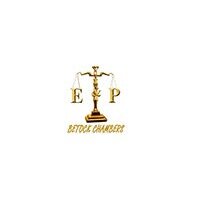Best Sexual Harassment Lawyers in Freetown
Share your needs with us, get contacted by law firms.
Free. Takes 2 min.
List of the best lawyers in Freetown, Sierra Leone
About Sexual Harassment Law in Freetown, Sierra Leone
Sexual harassment in Freetown, Sierra Leone, is an issue that affects many individuals across various sectors of society. The law in Freetown is designed to protect individuals, especially women and girls, from unwanted sexual advances, inappropriate conduct, and any behavior that can be deemed as harassment. Sexual harassment encompasses a range of behaviors including unwelcome comments, gestures, or physical acts. It is important to understand the legal definitions and protections available to victims to ensure justice and support.
Why You May Need a Lawyer
Individuals facing sexual harassment may need legal representation to navigate the complexities of the law. Common situations where legal help may be necessary include:
- Determining whether a specific behavior qualifies as sexual harassment under the law.
- Filing a formal complaint with employers or relevant authorities.
- Pursuing legal action against an employer or individual perpetrator.
- Negotiating settlements or compensation for damages experienced.
- Understanding your rights and protections under local and national legislation.
Local Laws Overview
The legal framework in Freetown for addressing sexual harassment involves several key aspects:
- The Constitution of Sierra Leone: This foundational document enshrines the rights of individuals, which includes the right to dignity and freedom from discrimination.
- The Sexual Offenses Act 2012: This act provides explicit definitions and penalties concerning sexual harassment and other sexual offenses, aiming to protect victims and apply stringent measures against perpetrators.
- Employment Laws: Employers are mandated to ensure a safe working environment free from harassment through policies and mechanisms to address grievances.
Frequently Asked Questions
What constitutes sexual harassment in Sierra Leone?
Sexual harassment includes any unwelcome sexual advances, requests for sexual favors, or other verbal or physical conduct of a sexual nature that affects an individual's employment, creates a hostile working environment, or is used as a basis for employment decisions.
Can men also be victims of sexual harassment?
Yes, both men and women can be victims of sexual harassment, though women are statistically more affected. The law applies regardless of gender.
How does one report sexual harassment in Freetown?
Victims can report incidents to their employer, the police, or seek assistance from a lawyer or relevant non-governmental organizations that handle such cases.
What are the possible legal outcomes of a sexual harassment case?
Outcomes can include disciplinary action against the perpetrator, monetary compensation to the victim, or criminal charges if the behavior constitutes a criminal offense.
Are there legal protections against retaliation for reporting sexual harassment?
Yes, the law protects individuals from retaliation or victimization after reporting sexual harassment. This includes adverse employment actions or harassment.
How long does it take to resolve a sexual harassment case?
The duration varies depending on the complexity of the case, the parties involved, and the court's schedule. Some cases may resolve in a few months, while others may take longer.
Is there a time limit for reporting sexual harassment?
While it is advisable to report incidents as soon as possible, specific time limits for reporting can depend on the context and seriousness of the incident.
What support is available for victims of sexual harassment in Sierra Leone?
Support for victims includes legal aid, counseling services, and support groups provided by various organizations and governmental bodies.
Can I settle a sexual harassment case outside of court?
Yes, parties can agree to a settlement without going to court. However, it is essential to have legal guidance to ensure a fair settlement.
What should I document if I am experiencing sexual harassment?
Victims should document everything related to the incident, including dates, times, locations, descriptions of behaviors, and any witnesses or evidence, which can be crucial in any legal proceedings.
Additional Resources
If you need further assistance, consider reaching out to these resources:
- Ministry of Social Welfare, Gender and Children's Affairs
- The Legal Aid Board of Sierra Leone
- RAINBO Centres which provide counseling and support for survivors
- Lawyers and law firms specializing in employment and discrimination law
- Human rights organizations actively working on gender issues.
Next Steps
If you require legal assistance with sexual harassment, consider taking the following steps:
- Document all incidents and gather evidence.
- Contact a legal professional who specializes in sexual harassment cases.
- Report the behavior to your employer if it takes place at work.
- Seek support from local organizations or support centers.
- Consider mediation or negotiation as initial steps before pursuing litigation.
Taking these steps can help you effectively address the situation and protect your rights.
Lawzana helps you find the best lawyers and law firms in Freetown through a curated and pre-screened list of qualified legal professionals. Our platform offers rankings and detailed profiles of attorneys and law firms, allowing you to compare based on practice areas, including Sexual Harassment, experience, and client feedback.
Each profile includes a description of the firm's areas of practice, client reviews, team members and partners, year of establishment, spoken languages, office locations, contact information, social media presence, and any published articles or resources. Most firms on our platform speak English and are experienced in both local and international legal matters.
Get a quote from top-rated law firms in Freetown, Sierra Leone — quickly, securely, and without unnecessary hassle.
Disclaimer:
The information provided on this page is for general informational purposes only and does not constitute legal advice. While we strive to ensure the accuracy and relevance of the content, legal information may change over time, and interpretations of the law can vary. You should always consult with a qualified legal professional for advice specific to your situation.
We disclaim all liability for actions taken or not taken based on the content of this page. If you believe any information is incorrect or outdated, please contact us, and we will review and update it where appropriate.











